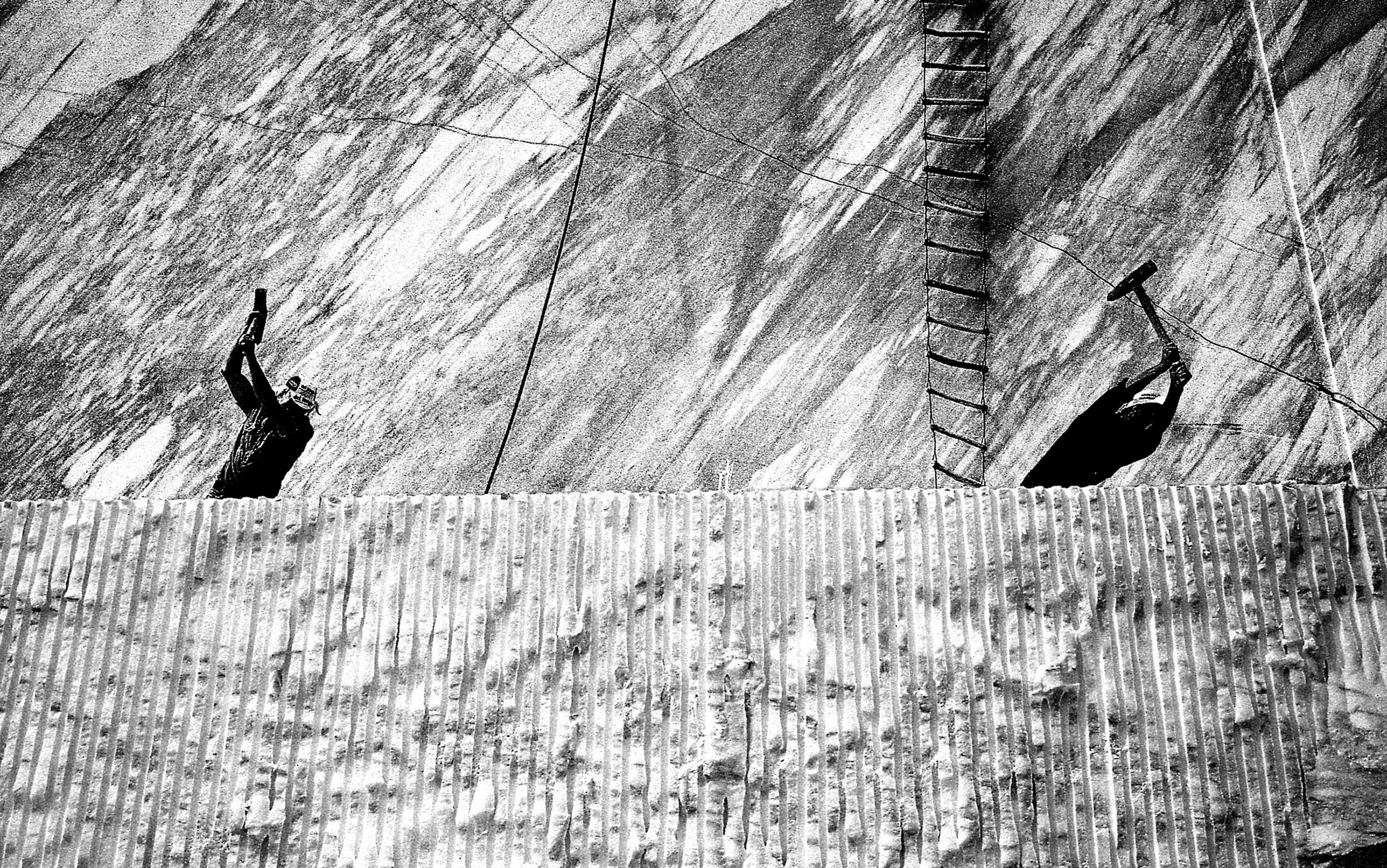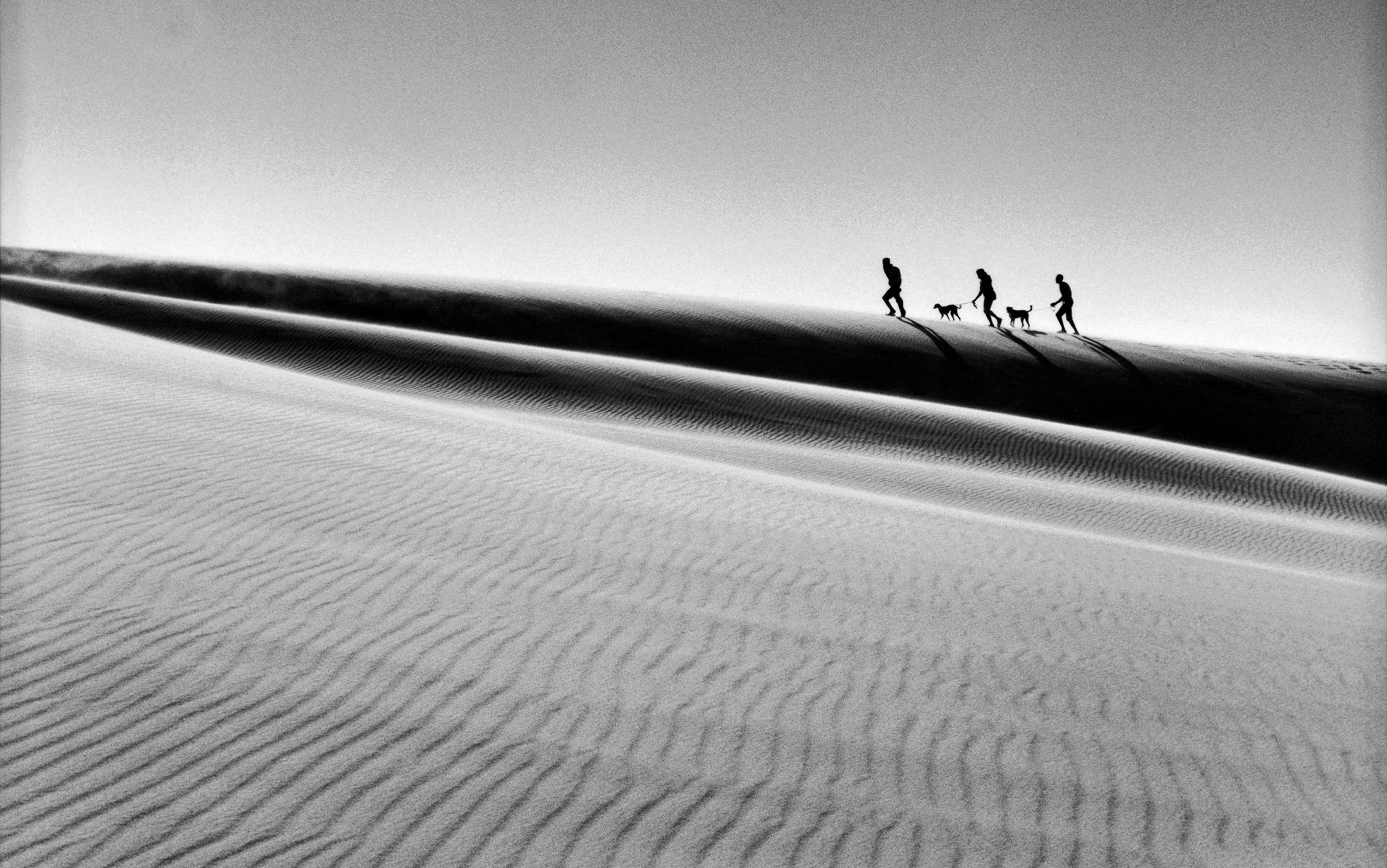Imagine a planet on the far side of the galaxy. We will never interact with it. We will never see it. What happens there is irrelevant to us, now and for the conceivable future. What would you hope this planet is like?
Would you hope that it’s a sterile rock, as barren as our Moon? Or would you hope it has life? I think, like me, you’ll hope it has life. Life has value. Other things being equal, a planet with life is better than a planet without. I won’t argue for this. I take it as a starting point, an assumption. I invite you to join me in feeling this way or at least to consider for the sake of argument what might follow from feeling this way. Life – even simple, nonconscious, microbial life – has some intrinsic value, value for its own sake. The Universe is richer for containing it.
What kind of life might we hope for on behalf of this distant planet, if we are, so to speak, benevolently imagining it into existence? Do we hope for only microbial life and nothing more complex, nothing multicellular? Or do we hope for complex life, with the alien analogue of lush rainforests and teeming coral reefs, rich ecosystems with ferns and moss and kelp, eels and ant hives, parakeets and spiders, squid and tumbleweeds and hermaphroditic snails and mushroom colonies joined at the root – or rather, not to duplicate Earth too closely, life forms as diverse and wondrous as these, but in a distinct alien style? Again, I think you will join me in hoping for diverse, thriving complexity.
Should we stop there, though? Don’t we also hope for (for lack of a better word) intelligent life – life capable of complex linguistic communication, art and science, decades-long cooperative projects, elaborate fantasies, love and war, heroic self-sacrifice and villainous treachery (it’s probably too much to expect one without the other), ecstasy and anguish, incredible athletic feats – life that possesses a knowledge of its history, hopes for the distant future, introspective self-criticism, the capacity to be struck with awe and wonder at the scale of the cosmos? I’m not asking you to imagine a distant paradise but instead only a realistic package, a planet with a fair mix of the inspiring and the horrifying.
Among the things I’d most hope for is a rich curiosity that can and sometimes does speculate ambitiously, pushing against the edges of its understanding – beings with an intellect that allows them to ask profoundly difficult questions about the origin of the Universe, the nature of value, the grounds of knowledge, the fundamental structure of reality, the nature and limits of its own mind. I would hope for a species, or two, or a hundred, whose enquiry isn’t limited to the immediate, the practical or the straightforwardly answerable, that can wonder ‘Why?’ even with no foreseeable method to achieve an answer. An intelligent species with no such speculative impulse would swim only in the shallows. Even if it had love, joy, artwork, athletic competitions and soaring architecture, it would think only instrumentally.
Let’s turn our eyes back to Earth. A significant part of what makes Earth a bright spot of value in the cosmos – perhaps the brightest spot in our galaxy – is that certain skin-bags of mostly water can gaze up at the stars and speculate. We can think about the beginning before the beginning; we can wonder why there is something rather than nothing; we can tie ourselves in knots about the origins of value and the significance of art; we can worry about preposterous-seeming forms of radical scepticism; we can concoct six competing theories of why two and two is (or isn’t always) four. We possess depths – a capacity to query far beyond the here and now, far beyond the practical and visible, toward questions stupendously abstract, general and daunting. To any bluebirds or kangaroos who might be listening, I say, amazing as you are, you really have no idea how much more amazing a species could be.
Earth is a bright spot of value in the cosmos, in other words, in part because it contains human beings who, driven by curiosity and a non-instrumental desire to address hard questions, attempt some philosophy. Philosophical enquiry makes the entire planet better than it would otherwise be. It helps constitute the awesomeness of Earth. Philosophy needs no further excuse.
The distinctive value of human science lies in its philosophical potency
Assume for a minute the worst about philosophy: that it has no instrumental value for other ends, that philosophers will never agree on the correct answers to anything, that studying ethics makes us no ethically better (as my own empirical research on the behaviour of ethicists tends to suggest), that philosophy is often just a tool to justify our vices, that our philosophical inclinations reveal more about our fixations and pathologies than about the world we seek to understand. Fine and (for the sake of argument) granted! Maybe it really is that bad. And yet: simply to pose a philosophical question is already a magnificent cognitive achievement – even just occasionally, even just in play. Our capacity for philosophical enquiry separates us from all other species. Earth becomes a very different and more interesting planet than it would otherwise be, regardless of any truths or practical consequences that might emerge.
Is science better and more profound than philosophy, more central to the specialness of Earth? Of course, science can extend our lifespans and empower us to transform the environment. But the longevity and power of one species isn’t what makes Earth special. Imagine longer-lived and more powerful bluebirds and kangaroos. Cool, for sure! But longevity and power are just more of what many species already possess. Consider instead, the profoundest achievements of science: the Copernican/Galilean/Newtonian revolution, Charles Darwin’s theory of natural selection, Albert Einstein’s theory of relativity, quantum mechanics, recent breakthroughs in genetics and neuroscience. All have transformed our understanding of the cosmos and our position within it. That’s what makes them so remarkable. The distinctive value of human science lies in its philosophical potency – its power to guide us toward the broadest and most foundational issues about ourselves and our Universe. Art is the same: at its best and most ambitious, art transcends decoration and amusement, confronting us with, exploring and playing with the puzzles of human existence. In their most awesome manifestations, the human arts and sciences merge into philosophy. They express and develop our philosophical impulses.
Might pleasure be more important than philosophy? Well, despite the lip-service sometimes given to pleasure, few of us pursue it devotedly. Through our choices, we reveal our disdain for pleasure compared with other goods we prefer – and reasonably so. Pleasure simply for its own sake, unaccompanied by meaningful achievement or connection with others, leaves us empty. Give me a planet of curious humans, rich with enquiry, doubt and wonder, over a planet of ecstatic llamas whose simple desires are all fulfilled.
Is love more important than philosophy? I don’t know that I can honestly profess that a planet with philosophical enquiry but no love would be better, more awesome, more wonderful, more worth hoping for, than a planet with love but no one capable of contemplating the meaning of life or the nature of reality. Still, the value of love depends partly on the nature of the lover and the beloved. If birds love, they do not love like us. We humans can reflect on and revise our values together as lovers, and in fact are always doing so. We can choose to resist love or yield to it. We can contemplate the grounds or lack of grounds for our love. And we can commit with a depth of understanding – or with the depth that comes from knowing we don’t really understand. Even our love, at its best, becomes philosophical.
You might think that philosophy fails if it does not converge upon the truth. No. This narrow perspective ignores exactly what gives philosophy its distinctive value.
This isn’t to say that philosophical enquiry should be unconstrained by concern for discovering truths. On the contrary, we should pursue truth earnestly. But philosophical enquiry is naturally adventuresome, exploring topics where our ordinary epistemic tools break, revealing their limitations. When we plunge after the most fundamental questions, we shouldn’t expect to find the one final truth that all future thinkers will be compelled to accept by argumentative force. More realistically, we should hope for glimpses through the fog. Often, our best success is only to better appreciate the shape of our ignorance. The distinctively awesome task of philosophy is to contemplate the most general and important questions that lie beyond our full grasp.
A metaphor: as the circle of light expands, Einstein apocryphally said, so too does the ring of darkness around it. Philosophy lives in that ring of darkness. More specifically, it lives in the penumbra, the shadowy boundary just beyond the light.
Within the circle of light lies what is straightforwardly knowable through common sense, mainstream science or other established methods. Water is H2O. There’s tea in this mug. Confucius died more than 2,000 years ago. You shouldn’t schedule children’s parties at three in the morning. In the penumbra are matters of conjecture or speculation: there’s alien life somewhere in the galaxy. Human beings are essentially just arrangements of material stuff, nothing more. My retiring colleague will enjoy this Friedrich Nietzsche finger puppet I just gave her.
There’s no sharp line between light and dark, and no sharp beginning or end to the penumbra
Not all penumbral questions are philosophical, and philosophy doesn’t dwell only in the penumbra. Was there once life on Mars? This question is penumbral – not straightforwardly answerable – but it’s not primarily philosophical, and neither is my question about the finger puppet, at least as such questions are ordinarily asked. Such questions can be addressed by narrowly tailored applications of straightforward science and common sense, even if the answers remain uncertain. Conversely, some questions addressed by philosophers lie well within the circle of light: whether Immanuel Kant ever wrote some particular sentence, whether Q follows from the conjunction of not-P, and not-Q implies P.
Still, the penumbra is philosophy’s familiar home, and any sufficiently broad question about the penumbra can be treated as a philosophical question. These broad, penumbral questions can be addressed by big-picture speculative scientists, by ambitious artists and cultural critics, or by philosophers. We need draw no sharp distinction. Theoretical physicists and philosophers of physics can equally and collaboratively explore and debate interpretations of quantum mechanics. Theoretical psychologists and philosophers of psychology can equally and collaboratively explore and debate the nature of mental representation. Novelists and philosophers can equally and collaboratively explore and debate what constitutes a life well lived or how to find meaning in a vast, seemingly indifferent cosmos.
Matters within the circle of light needn’t be known indubitably or hold true exceptionlessly. I might be wrong about what’s in my mug. A party at 3 am might be exactly what my group of jetlagged toddlers needs. History might someday reveal that Confucius is a legendary amalgam of several sages. Still, we can distinguish between what we reasonably regard as yielding to ordinary methods of enquiry and evidence, and what we recognise as tending to elude such methods, requiring a more speculative approach. The latter constitutes the penumbra. Of course, there’s no sharp line between light and dark, and no sharp beginning or end to the penumbra. Some penumbral questions – such as the ultimate origin of the Universe, if any, before the Big Bang – lie with their far edge well into darkness – for now anyway.
Nor is the penumbra fixed. As the apocryphal Einstein quote suggests, the circle of light can grow. What was once penumbral – whether humans and monkeys share an ancestor, whether every true sentence of arithmetic is in principle provable – can be illuminated. (Yes and no, respectively, according to modern biology and Kurt Gödel’s incompleteness theorem.) Wild philosophical speculation can become ordinary science – as it has done many times before.
But as the light grows, the penumbral ring expands to match. There will always be darkness beyond, and philosophical speculation will chase it. We will never complete the project of understanding the fundamental structure of the world. Generations of philosophers will die without getting satisfactory answers to their most searching questions. If we find out that X caused the Big Bang, we can then speculate about what caused X, or whether X arose without a cause. If we converge on a scientific consensus that explains human consciousness in terms of Theory T, we can speculate about how Theory T would extend to animal cases, and AI cases, and hypothetical space alien cases, and we can probe into the necessity or fundamental grounds of that theory.
Consider the following trilemma, commonly attributed to the ancient sceptic Agrippa. To establish some proposition A, if we aren’t just going to assume it without argument, we need an argument with at least one premise B. But then to establish proposition B, we need a further argument with at least one premise C. But then to establish C, we need some further premise D, and so on. Either, 1) we simply stop dogmatically somewhere, assuming A (or B or C…) without argument; 2) we argue in a circle, eventually coming back around to A (because B because C because D because… A); or 3) we regress infinitely, so that there’s always a new question to pursue without end.
To date, every sufficiently persistent toddler has a perfect win-loss record – all are undefeated
Practically, of course, we must start somewhere – either with some premises we (perhaps reasonably) assume without further argument (Horn 1) or with some set of premises that mutually support each other and are assumed as a bundle (Horn 2). But we will always be able to ask why assume that proposition or bundle? We can always go deeper, more fundamental. We can always ask about the grounds beneath the grounds beneath the grounds. Behind every curtain stands another curtain. There is no last curtain we can open after which we will have complete understanding. This retreating-curtain view can be justified on Agrippan grounds.
Alternatively, we can defend the retreating-curtain view by induction, that is, by appeal to the patterns of past experience. Never so far have we found a once-penumbral question that, when answered, didn’t reveal new, more fundamental questions behind it. Just try to find a counterexample! You won’t, because whatever answer you give me, I can always respond with the toddler’s trick of replying to every answer with a new iteration of ‘Why?’ To date, every sufficiently persistent toddler has a perfect win-loss record – all are undefeated. (Why, you ask? Something about the structure of assertion. But why does assertion have that structure? Here we go again…)
Even within the light, it’s entirely possible to be an annoying philosopher-toddler. My mug contains tea. Well, how do I know that? By looking in it. Well, how do I know that looking into a mug is a good way to learn about its contents? Well, um… now already I’m doing philosophy. Maybe because looking in general has seemed to be a reliable process in the past. Well, how do I know that? And even if I do know it, why think that the past is a reliable guide to the future? Starting anywhere, we can quickly find layers of philosophical depth. Think of the circle of light, perhaps, not as a two-dimensional figure but instead as a thin disk in three-dimensional space. Even if you start at its middle, with the seemingly most straightforward and securely known facts, dig just a few questions deep and you will find penumbra and darkness.
This, then, is what is distinctively special about philosophy: it lunges after the big questions in the penumbra. In doing so, we can’t reasonably expect secure knowledge, convergence, and arguments so compelling that they force all rational people to agree. The penumbra just is the region in which such results cannot reasonably be expected. But the human capacity to pursue such questions is central to the awesomeness of planet Earth.
No other species strains in this way against its epistemic bounds. Ambitious philosophical curiosity is the most human of motives. Every one of us is a philosopher sometimes, by age three or four at the latest. If we ever meet (or design) another philosophical species, they will be our kin, however radically they differ in every other way.
Philosophy can aim to open or to close. Suppose you enter Philosophical Topic X imagining three viable, mutually exclusive possibilities: A, B and C. The philosophy of closing aims to reduce three to one. It aims to convince you that A is correct and the others wrong. If it succeeds, you know the truth about Topic X: A is the answer! In contrast, the philosophy of opening aims to add new possibilities into your thinking – possibilities that you hadn’t considered before or that you had considered but too quickly dismissed. Instead of reducing three to one, three grows to maybe five, with new possibilities D and E. We can learn by addition as well as by subtraction. We can learn that the range of viable possibilities is broader than we had assumed.
For me, the greatest philosophical thrill is realising that something I had long taken for granted might not be true, that some ‘obvious’ apparent truth is in fact doubtable – not just abstractly and hypothetically doubtable, but really, seriously, in-my-gut doubtable. The ground shifts beneath me. Where I thought there would be floor, there is instead open space I hadn’t previously seen. My mind spins in new, unfamiliar directions. I wonder, and the world itself seems to glow with a new wondrousness. The cosmos expands, bigger with possibility, more complex, more unfathomable. I feel small and confused, but in a good way. With each new ‘or’ I add, my epistemic world widens.
To ask only questions we can answer would be a sad failure of imagination
Philosophers famously disagree, and rarely are big philosophical issues decisively settled. This is fitting, given the penumbral nature of philosophy. If the aim of philosophy is closure, this lack of convergence is disappointing. It might even seem, disappointingly, that rather than converging on the truth, philosophers diverge away from it, each new generation introducing a new array of wild views that other philosophers can’t quite conclusively refute. (Some recent new entries: might we be living in a simulation? Might the world be constantly splitting into near-duplicates, per the ‘many worlds’ interpretation of quantum mechanics? Might some Large Language Models be sentient?)
But closure and convergence aren’t, or shouldn’t be, the primary aim of philosophy and the mark of progress. It is also progress to create doubt where none existed before, if that doubt appropriately reflects our newly recognised ignorance. It is progress to appreciate possibilities we hadn’t previously grasped. It is progress to chart previously unthought landscapes of what might be so. Both professional philosophers and non-philosophers in their philosophical moments should work at least as hard exploring neglected possibilities, uncovering implicit but dubious assumptions, and opening up new avenues of thought as they work on defending their favourite views. To ask only questions we can answer would be a sad failure of imagination.
Billions of years ago, some stars exploded. The resulting heavy atoms swirled together into planets orbiting new stars. Pieces of those planets came to life, opened their eyes. Some learned to talk. They learned to wonder about their place in the cosmos, and about themselves, and about their values, and about their capacity to wonder about the cosmos, themselves and their values. They peered past the limits of their knowledge, asking ambitious questions they could not fully answer, appreciating both the importance of those questions and their incapacity to fully answer them. Each of us, when we philosophise, become the means by which the Universe, after billions of years, wakes to itself, momentarily contemplating itself in doubt and amazement. Nothing is more intrinsically valuable. Nothing is more worthy of reverence and awe.






